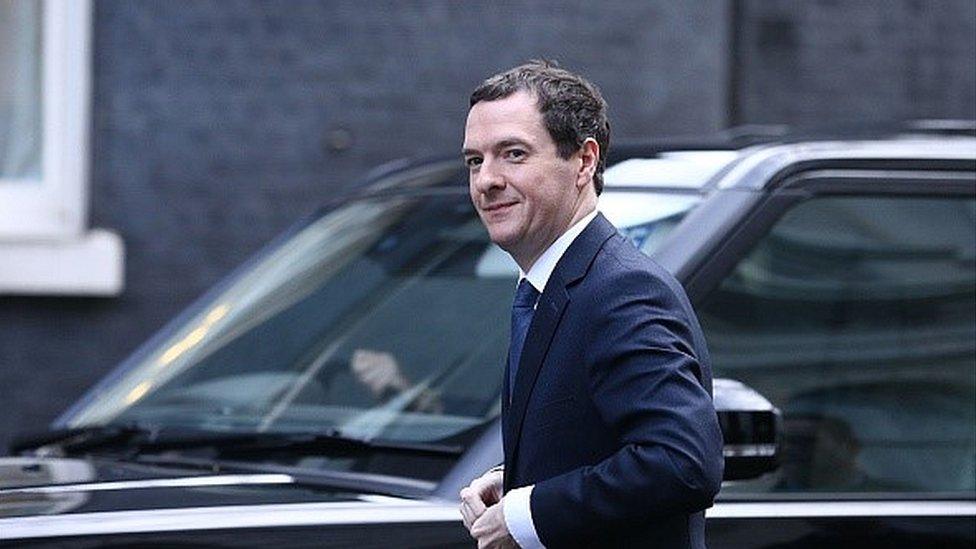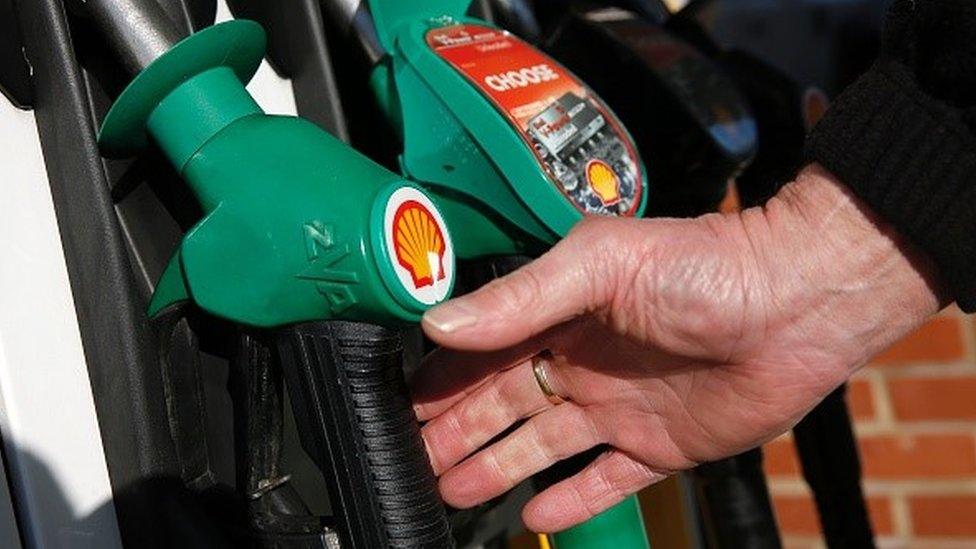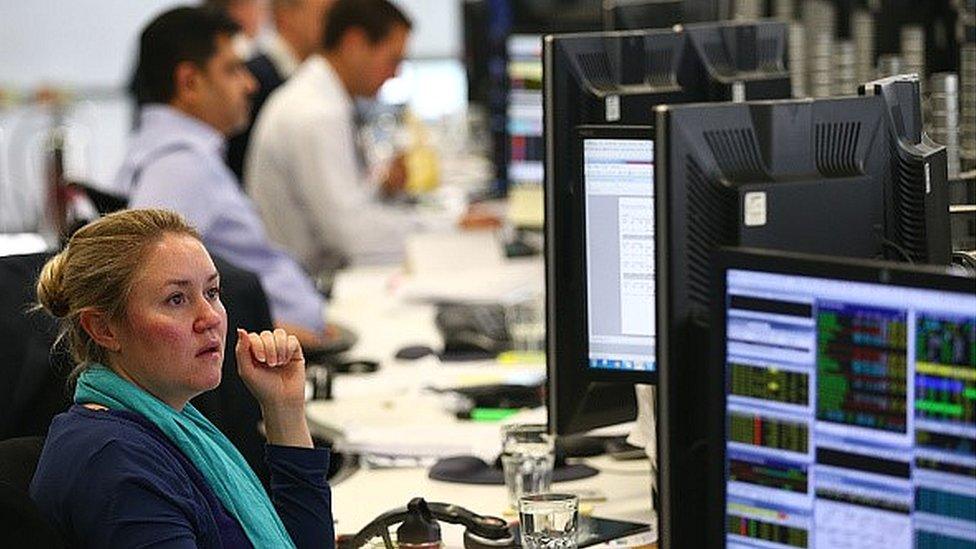Budget 2016: Osborne's economic fitness regime
- Published

The trouble with self-imposed targets is that if you break them, no one cares quite as much as you. A bit of bad weather and you don't go out for that run. One rotten day and your low-carb regime is ditched.
As with diets, so with Budgets. George Osborne's economic policy is guided by self-imposed targets which add up to "economic sanity".
One is the much-trumpeted fiscal charter. The chancellor has pledged and legislated to return the Budget to surplus within four years - in other words, to spend less than his income - and keep it in surplus unless economic growth drops below 1%.
A second is the promise set out in last year's Budget to have debt falling as a percentage of the economy in this financial year 2015-16, and in every year through to 2020. As long as the Budget is in deficit - in other words, we're spending more than our income - the chancellor has to borrow to make up the difference. But the plan has been to make up for that - and then some - by selling state assets such as our stakes in RBS and Lloyds.
A third is the promise to keep welfare spending within strict limits. In 2014 the chancellor pledged to spend no more than £119.5bn on welfare in 2015-16, with the cap rising to £126.7bn by 2018-19. The discipline was supposed to be that if the limit were breached the chancellor must come to parliament, account for his failure to control public expenditure, and say what he would do to address it.
So how's the regime working out? However strong the initial resolve may have been, it is looking distinctly sweaty now.
The third self-imposed goal has been breached. The second is likely to be breached. And the first looks decidedly dicey.

Chancellor George Osborne has warned of global risks to the UK economy
The chancellor can supply some understandable reasons why - which he can be expected to repeat in his Budget speech. The "dangerous cocktail" of financial risks - deflation, low global demand as exhibited by oil prices (in spite of the recent rebound) - has only become apparent recently and wasn't evident when the self-imposed goals were first announced.
A stronger economy at home has been a marked contrast to weakness abroad.
"It was precisely because we live in an uncertain world, because we have not abolished boom and bust as a nation, that... I need to go on explaining to the public that the difficult times aren't over," Mr Osborne warned earlier this year.
Bad economic weather
That uncertain world has been imposing itself. Barely noticed, the welfare cap was breached at the last Autumn Statement - largely because of the chancellor's decision to postpone his cuts to the amounts tax credit claimants could earn before the benefit was clawed back.
Stormy financial markets have made the second self-imposed target vulnerable. In January Mr Osborne announced he was postponing the sale of part of Lloyds to the public. Planned sales of the taxpayer's giant stake in RBS also look difficult. The Institute for Fiscal Studies (IFS) now predicts he is unlikely to be able to boast that debt is falling as a percentage of the economy in every year through to 2020.
And bad economic weather has also jeopardised his chances of eliminating the deficit on time. The chancellor is getting substantially more income than last year, with income tax, VAT and corporation tax all growing.
But spending has been rising too - mainly because of all the exemptions from austerity - for state pensions, for the NHS, for schools and overseas aid. Tax receipts need to rise faster - or spending to be slashed faster - if he is to get that overspend down.

Consumers have benefited from lower petrol prices
The economy has enjoyed what Andrew Goodwin of Oxford Economics describes as a "sugar rush" -the equivalent of a big tax cut - or 'fiscal stimulus' - through lower petrol prices. The economy grew by 2.2% last year; 80% of that growth was down to consumer spending.
"That [growth] strikes us as some distance below par given the tailwinds we have had," Mr Goodwin says. And after the sugar rush comes the sugar crash: growth is likely to be revised down in the years to come because of global economic weakness.
Low inflation may mean the government will spend less on benefits, for example. But that saving will be outweighed by slower growth in taxes - notably the one linked to prices, VAT.
The chancellor did his best to set a good course in the Autumn Statement - but didn't boast too much that, by imposing measures like an apprenticeship levy, stamp duty on second properties and insurance premium tax, he was raising taxes by approximately £15bn.

Share price falls could hit revenues from capital gains tax and inheritance tax
Nevertheless, to hit the target of getting to a £10bn surplus by 2019-20, nothing must go wrong. And there are risks.
Carl Emerson of the IFS points out that, if the Office for Budget Responsibility downgrades its prediction for pay rises in line with the Bank of England's latest projections, that will cost the chancellor £5bn a year because of lower income tax receipts.
Falls in share prices could hit the £14bn in revenues from capital gains tax and inheritance tax. And the government's promise, so far unfunded, to raise the income tax threshold (below which you don't pay it) to £12,500, together with raising the higher rate threshold to £50,000, could remove £8bn from the public purse.
Or take a simpler view. The total amount of public spending was predicted at the last Budget to be £742bn this financial year.
The surplus Mr Osborne is aiming for in four years' time - £10bn - is, by comparison, inscrutably small.
A tiny 1.3% shift in spending four years from now would be enough to wreck the self-imposed Budget-trimming plan.
Just one more wafer thin mint, Mr Osborne?